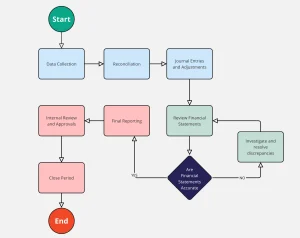
And so, short-term investors need to consider how much volatility in the stockmarket they can handle, tech stocks could be a bubble.
Even market pull-backs – in which invested funds could easily be lost on paper – can be healthy and, at the same time, offer lucrative buying opportunities.
Over-investment
The trouble is, buying into the stockmarket is inherently risky business, so you need to place your return expectations within a broader perspective, taking into consideration not just who you are (eg, your risk tolerance) but what everyone else is doing (ie, looming market downturns). The key to dodging the full force of a bear market is to remain committed over the long term – thereafter, your portfolio will inevitably be drawn back into the fold once prices begin to rebound. The research paper examines over-investment behaviour by resource companies from 32 countries in the G20-area, and their linkages with business cycles and macroeconomic uncertainties. The findings depict that global and home country business cycles are important factors that influence the over-investment behaviour; the impacts are positive and negative respectively; moreover, commodity price uncertainties and global economic policy/governance policy uncertainties are relevant to the over-investment behaviour. Over-investment, or incapacity on the supply side, is a variation of managerial overexpansion whereby firms acquire financial and real assets with a projected return below the one available in capital markets. It could be fuelled by reasons other than pure finance such as the enhancement of (shareholder) profits, or excessively optimistic appraisals of the state of the markets; it often relates to asset classes with a mix of investment and consumption goods such as houses or cars.
Excessive optimism
As a personality trait and character ideal, optimism has long been associated with success in many aspects of life, including team sports, the business world, and electoral politics. Most recently, on the Fox News Digital website, the Harvard Business School graduate Harry Dent stressed that this kind of optimism can also be dangerous. He claimed that we’re experiencing recessionary tendencies that have set in because the largest bubble in recorded history reached, and is now at the peak of its trajectory. Unless the Fed skillfully deflates this bubble completely, the resulting burst – a financial and economic implosion – will initiate another global economic depression. This sanguinicity is, in part, a cognitive issue. People tend to overestimate small probabilities (eg, 10 per cent risk of COVID-19 infection). When they evaluate the risk that groups they don’t consider themselves part of (abstraction social optimism bias) will impute to them, they tend to overestimate these probabilities (overimputation is self-favouring, but overestimates any small probabilities; even overimputation of large probabilities like 20 per cent occurs). It is Opportunists who are most likely to believe that their investments will produce a gain over time. Indeed, in the past decade, stocks have been more volatile than either bonds or real estate. Lower interest rates, if the Fed chooses to announce such action Tuesday, would be likely to dampen such hopes and lower the opportunity-cost for investing.
Unrealistic expectations
Excessive expectations can be an important factor in burst bubbles, as well. People who expect too much from their stock market picks are far more likely to be exasperated sellers and to engage in fire-sale mentality as equity markets fall, driving the process of panic selling that further pulls down prices, as buyers now seek to cut losses and find value. Barry Bannister, chief equity strategist of the broker Stifel, foresaw more drops because of ‘a rollover in growth as interest rates rise’ and because equity markets ‘are still too rich relative to bond yields and other metrics’. The economist Harry Dent recently predicted that the stock market will crash by 90 per cent next year. He expects a pre-1929-style downturn warning of 98 per cent losses in many high-quality stocks such as Nvidia ‘by Christmas 2020’. ‘Asset bubbles are beginning to crest and collapsing forecasting another Great Depression for 2020-22’, he said in an interview with Zero Hedge in July last year. In fact, you might want to remember that the word crush is commonly used for a market-wide crash. And let us not forget that every correction is a crash.
Unrealistic expectations
Unrealistic expectations contribute enormously to stock market crashes, which sometimes start when investors buy securities in the hope that they’ll rapidly go up in value, only to find later that they did not. Time to panic! Sell! And so on, with the process of panic feeding through Wall Street, accelerating prices downwards, and provoking further rounds of crash behaviour. Factors that cause economic instability include economic trends (such as fears about growth or trade in balance of payments), politics (such as friction) and even fear (such as terrorism). Overoptimism, speculation or bubbles caused by exuberance might also play a role. Be sceptical about anyone on social media or otherwise who says a stock market crash away, especially if they’re trying to sell you a book, investment advice or subscription service to ‘protect’ you from it; high leverage is generally a bad signal – it can mean the company or firm is unstable; and be conscious of the Sahm rule – if unemployment has jumped at least 0.5 percentage points, that could be your signal of recession.




